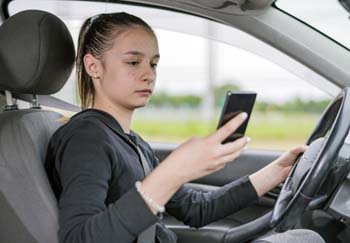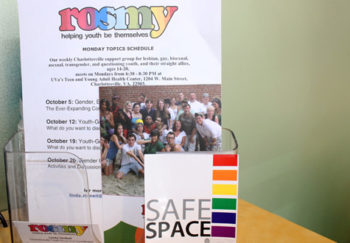
“I’m really good at texting and driving, because I don’t have to look at my phone. I can keep my eyes on the road.”
Sound familiar? Liz Cochran, the Health System’s injury prevention coordinator, has heard this before. But the facts speak for themselves: In 2016, 3,450 people died in the U.S. as a result of distracted driving, according to the National Highway Traffic Safety Administration. And the CDC lists motor vehicle crashes as the leading cause of death for U.S. teens.
What Is Distracted Driving?
There are three types of distracted driving, Cochran explains:
- Visual — Taking your eyes off the road
- Cognitive — Taking your mind off driving
- Manual — Taking your hands off the wheel
Even if you can text without looking at your phone, “manually, you’re taking a hand off the wheel, and cognitively, you’re taking your mind off the priority at hand,” Cochran says.
Similarly, phone calls, voice texting and passengers still require you to split your attention between the conversation and driving. That’s especially problematic for teen drivers. Not only do they have less experience, but with their underdeveloped frontal cortexes, they’re more likely to make impulsive — and bad — decisions, like checking their phones when they hear a text alert.
Teen Driving Classes in Charlottesville
Motor vehicle crashes are also, for all age groups, the second-leading cause of traumatic injury and death in our area, Cochran says. So she’s started a free distracted driving prevention class, Behind the Scenes, for teen drivers and their parents or guardians. She held the first one in spring 2018.
During Behind the Scenes, participants hear from crash survivors and observe a mock crash code. They also create a family driving contract and sign it, agreeing to follow the family rules. Research shows teens are less likely to engage in risky driving if they have this formal contract and engage in these conversations, Cochran says.
She received positive feedback after the spring class. One parent wrote, “This was excellent! I learned a ton, and I feel better about my daughter driving.”
Cochran also reminds parents how important it is for them to consistently model good driving behavior to their kids. “You are your child’s first driving coach, and the role you play in creating their driving habits is vital.”


I have friends that want to bring their teens to this class. I brought my children several years ago and it was amazing. When is the next one?